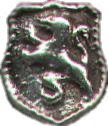This was the Orange Wednesday film my friends went to see, and the last in the current round that I was eager to watch. That was, until I read the reviews of Milk.
Unlike most of the people watching this, I actually have a pretty good impression about what Watergate was about, which wasn't as helpful as I'd thought it would be. The opening sequence consists of a montage of news-reel clips about the Watergate scandal, cut with excerpts from Frank Langella as Nixon giving his resignation speech live on television. What is conveyed well in these opening moments is the anger of the American people towards a president who was not going to be held to account for his criminal actions.
How much of the plot is factual and how much is embellished is always going to be hard to tell. Initially Frost is only interested in interviewing the former president as he would interview anyone else. A chat show interview. He has no intention of eliciting an apology or confession from him. But the appearance fee he needs to pay Nixon means that for various reasons, no network will buy the show he is producing and slowly he comes round to the idea from his team that the interview must give Nixon the trial he never had. Nixon looks on the interview as a means to rebuild his reputation, regain the public trust and move back into politics. However the historical accuracy is largely irrelevant. This film may be about a historical event, but it is not a documentary. It's a character biopic. Both Frank Langella and Michael Sheen repeat the roles they created on the stage play. Ron Howard said he would only agree to direct if the studio would allow both actors to appear in the film version. Sheen, better known to most as Tony Blair in The Queen, shows that he really can get a person's inflections and mannerisms down to a tee. And Langella's performance as Nixon is so convincing, it's chilling. The two actors kept up their character even between filming, so as to maintain the rivalry between them.
One of the lasting themes is the differences and similarities between Frost and Nixon. Both want accolades that may be forever beyond their grasp, yet while David Frost is shown as constantly attending parties and galas and Richard Nixon is shown as a private man surrounded by only a few friends and colleagues, they are both portrayed rather excellently as lonely men. There's a beautiful contrast between an opening shot of Nixon boarding Marine One as Frost watches on television and sees the smile for the cameras fade as he turns away, and a similar falling smile on David's face later in the film.
In many ways, this is like a boxing film between two fading champions. Both want to destroy the opposition, both want a comeback, but only one of them can win.
Ultimately, it is possible to leave the cinema feeling pity for both men. Nixon's realisation that he can never regain what he lost and Frost knowing that he may never achieve anything this historic again.
There is also a mention at the end, overplayed on a close-up of Nixon's face in the interview, that while television is used as an entertainment tool for the masses it can, if used correctly, accomplish something that no journalist, no prosecutor could ever manage. To show a man in complete defeat, ravaged by loneliness and self-loathing in defeat. It's a message that comes across in another of my favourite films Good Night, and Good Luck and that, if nothing else, would be reason enough to add it to my DVD shelf.
Score: A
OQ:
David Frost: It wasn't that bad....
James Reston: Wasn't that bad?!? I overheard two crew in there saying they hadn't voted for Nixon but if he was running for office today, they'd vote for him!

No comments:
Post a Comment